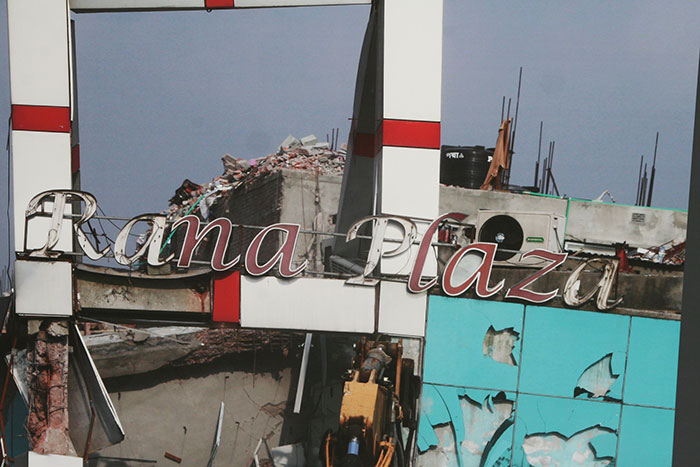Research

One of BCWS’ most critical functions is to carry out on-the-ground research and evidence collection in support of international advocacy efforts. As Bangladesh’s role in the global apparel industry has grown, so too has awareness about factory conditions and the treatment of workers and there are now many international solidarity organizations that engage in corporate campaigning around this issue. These campaigns rely heavily on information from workers on the ground in order to educate Western consumers about how their clothes are made and to put pressure on multinational brands to improve conditions in their supply chain.
BCWS works closely with groups, including United Students Against Sweatshops, the Clean Clothes Campaign, the International Labor Rights Forum, Workers Rights Consortium and SumofUs.org and Global Unions to put public pressure on brands sourcing from Bangladesh to improve their supply chain practices. The organization’s staff regularly collects information on a variety of topics, including wages, hours of work and overtime, safety hazards, abuse and harassment, and living conditions, among others and this research has proven critical in exposing the horrific conditions under which workers live and work. By providing compelling worker testimony and images, BCWS helps bridge the gap between consumers in the Global North and workers in the Global South to create more effective and comprehensive campaigns.
BCWS’ research also plays an important role in holding specific Western brands and retailers accountable for conditions in their factories and their obligations to workers. In the wake of the fire at Tazreen Fashions, BCWS staffs were at the factory within a few hours and, at great risk to themselves, entered the building to photograph documents and garments, important evidence that proved that Walmart, Sears/Kmart, ENYCE, Disney and others were buying from the factory. Although Walmart initially denied that Tazreen was a supplier, the photographs taken by BCWS proved that this was untrue and substantially increased public attention on Walmart over safety conditions in its factories.
When Rana Plaza collapsed, BCWS immediately sent staff to the site and collected labels, factory records, and pieces of clothing to document the buyers, which included Walmart, Children’s Place, JC Penney, Loblaw, Primark, United Colors of Benetton, Mango, Tesco and El Corte Ingles, among others. When the news of Rana Plaza collapse broke, not a single brand stepped forward to admit sourcing there – and it was not until the evidence collected by BCWS became public that some companies acknowledged the relationship. This has allowed international organizations to successfully hold many brands accountable for providing compensation to the victims and their families and adopting stronger and more effective safety program. Without BCWS’ on-the-ground research, none of this would be possible.
